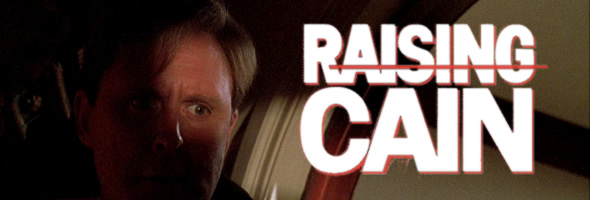
Color, 1992, 91m.
Directed by Brian De Palma
Starring John Lithgow, Lolita Davidovich, Stephen Bauer, Frances Sternhagen, Gregg Henry, Mel Harris
Arrow Video (Blu-ray & DVD) (UK RB/R2 HD/PAL), Scream Factory (Blu-ray) (US RA HD), Universal (DVD) (US R0 NTSC) / WS (1.85:1) (16:9)
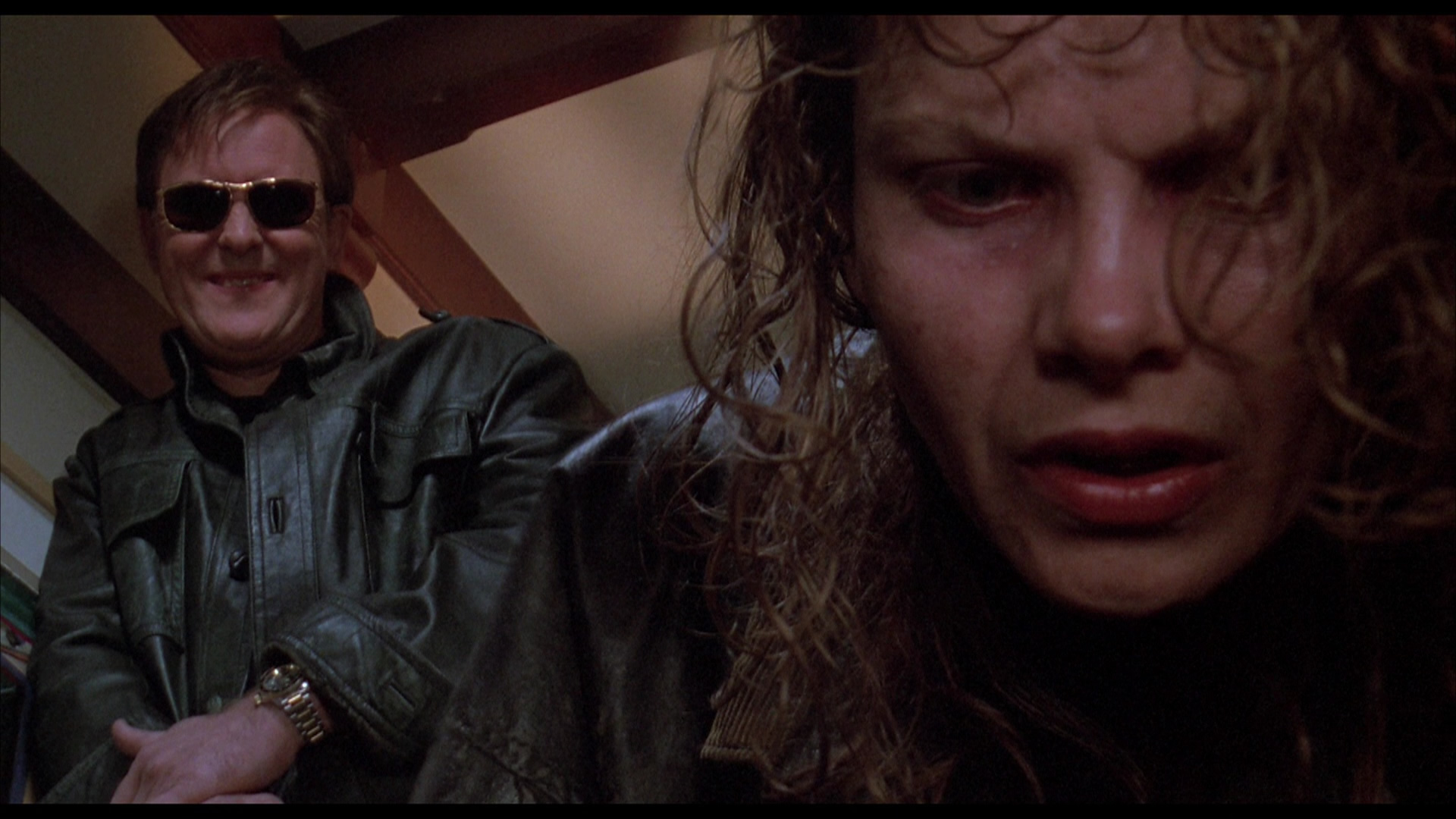
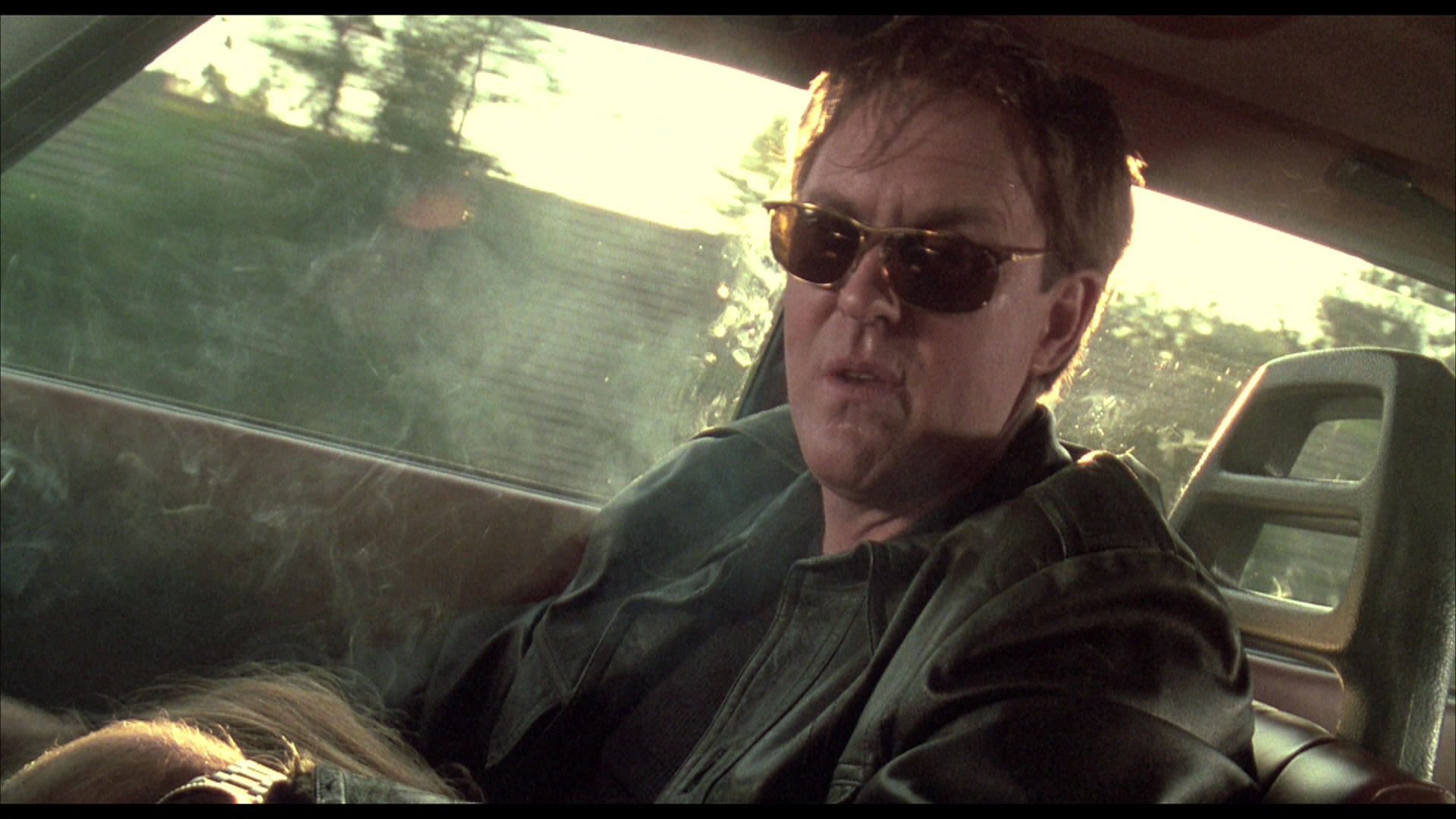
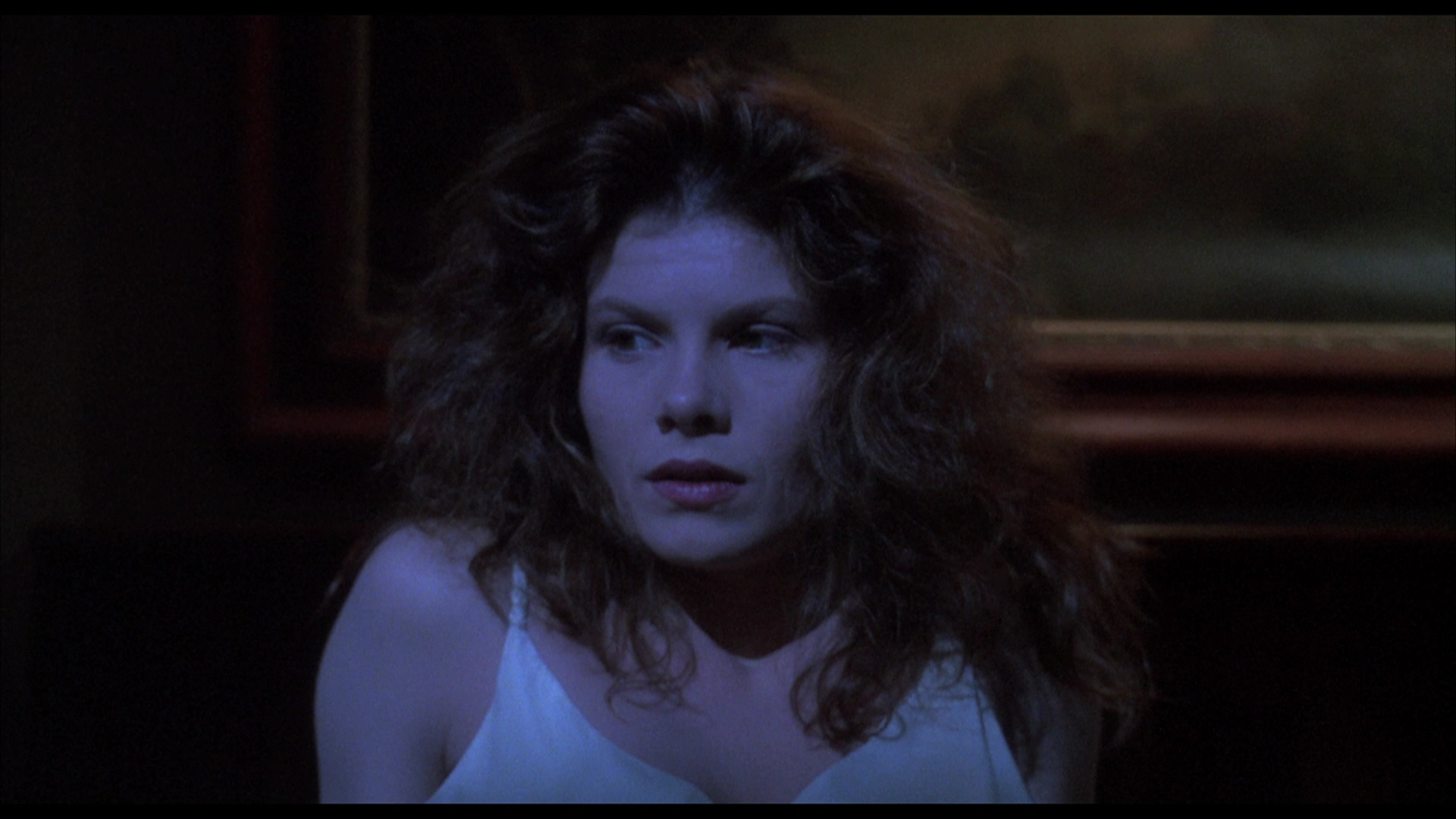
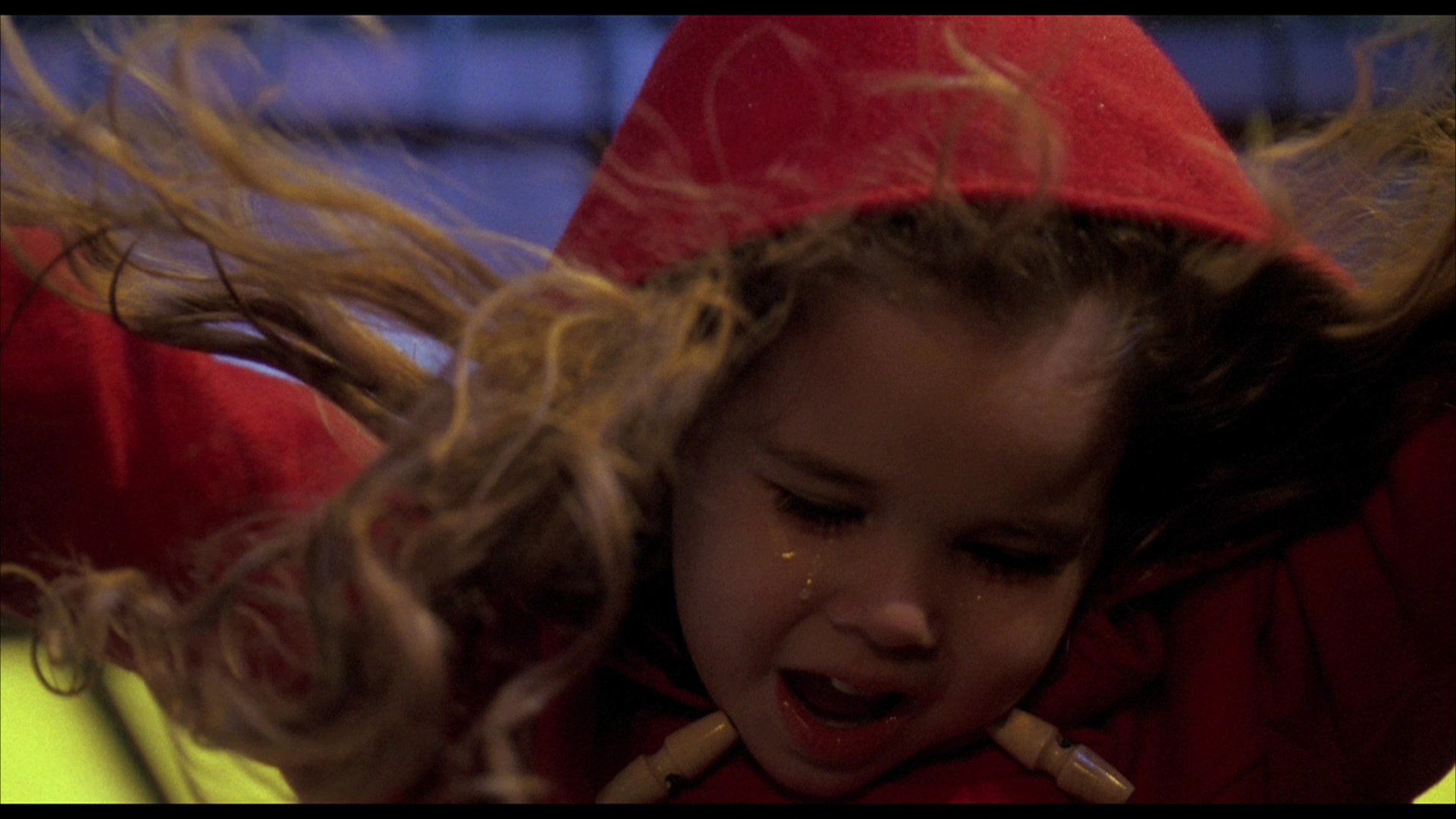 De Palma fans fell into the former category, with the director gleefully playing around with time and perception so radically that you're not even sure whether some characters are even real until the final ten minutes. He's also aided by yet another superb score by regular collaborator Pino Donaggio, which perfectly mirrors the heightened emotions and complete lack of realism on screen. The entire cast is perfectly fine with Gregg Henry and especially Frances Sternhagen getting some juicy supporting moments (her big exposition relay done in one of De Palma's nuttiest long takes is a keeper), but this is really Lithgow's show with the actor playing at least five different (sort of) characters at different points through the film. Exactly who they are and how they fit into the plot won't be revealed here, but it's a ton of fun watching him go full throttle through what amounts to a crazy 90-minute demo reel. As usual De Palma has plenty of fun incorporating and recontextualizing elements of his prior films including the empty shoe gag from Dressed to Kill and the extravagant spit diopter shots from his '70s and '80s work, plus other nods to filmmakers like Alfred Hitchcock (a fun take on Psycho's car submersion) and, most notoriously, Dario Argento's Tenebrae, with its most famous visual trick borrowed here for one particularly outrageous shot (repeated again in De Palma's Passion). Of course there's also the usual De Palma toying with the medium of film itself, this time transferred to television with monitors, TV screens, security camera feeds, and other methods of modern perception playing key roles in the film from a chilling hospital flashback (involving an eerie reflection on a TV screen) to a nifty shock effect on the video baby monitor.
De Palma fans fell into the former category, with the director gleefully playing around with time and perception so radically that you're not even sure whether some characters are even real until the final ten minutes. He's also aided by yet another superb score by regular collaborator Pino Donaggio, which perfectly mirrors the heightened emotions and complete lack of realism on screen. The entire cast is perfectly fine with Gregg Henry and especially Frances Sternhagen getting some juicy supporting moments (her big exposition relay done in one of De Palma's nuttiest long takes is a keeper), but this is really Lithgow's show with the actor playing at least five different (sort of) characters at different points through the film. Exactly who they are and how they fit into the plot won't be revealed here, but it's a ton of fun watching him go full throttle through what amounts to a crazy 90-minute demo reel. As usual De Palma has plenty of fun incorporating and recontextualizing elements of his prior films including the empty shoe gag from Dressed to Kill and the extravagant spit diopter shots from his '70s and '80s work, plus other nods to filmmakers like Alfred Hitchcock (a fun take on Psycho's car submersion) and, most notoriously, Dario Argento's Tenebrae, with its most famous visual trick borrowed here for one particularly outrageous shot (repeated again in De Palma's Passion). Of course there's also the usual De Palma toying with the medium of film itself, this time transferred to television with monitors, TV screens, security camera feeds, and other methods of modern perception playing key roles in the film from a chilling hospital flashback (involving an eerie reflection on a TV screen) to a nifty shock effect on the video baby monitor.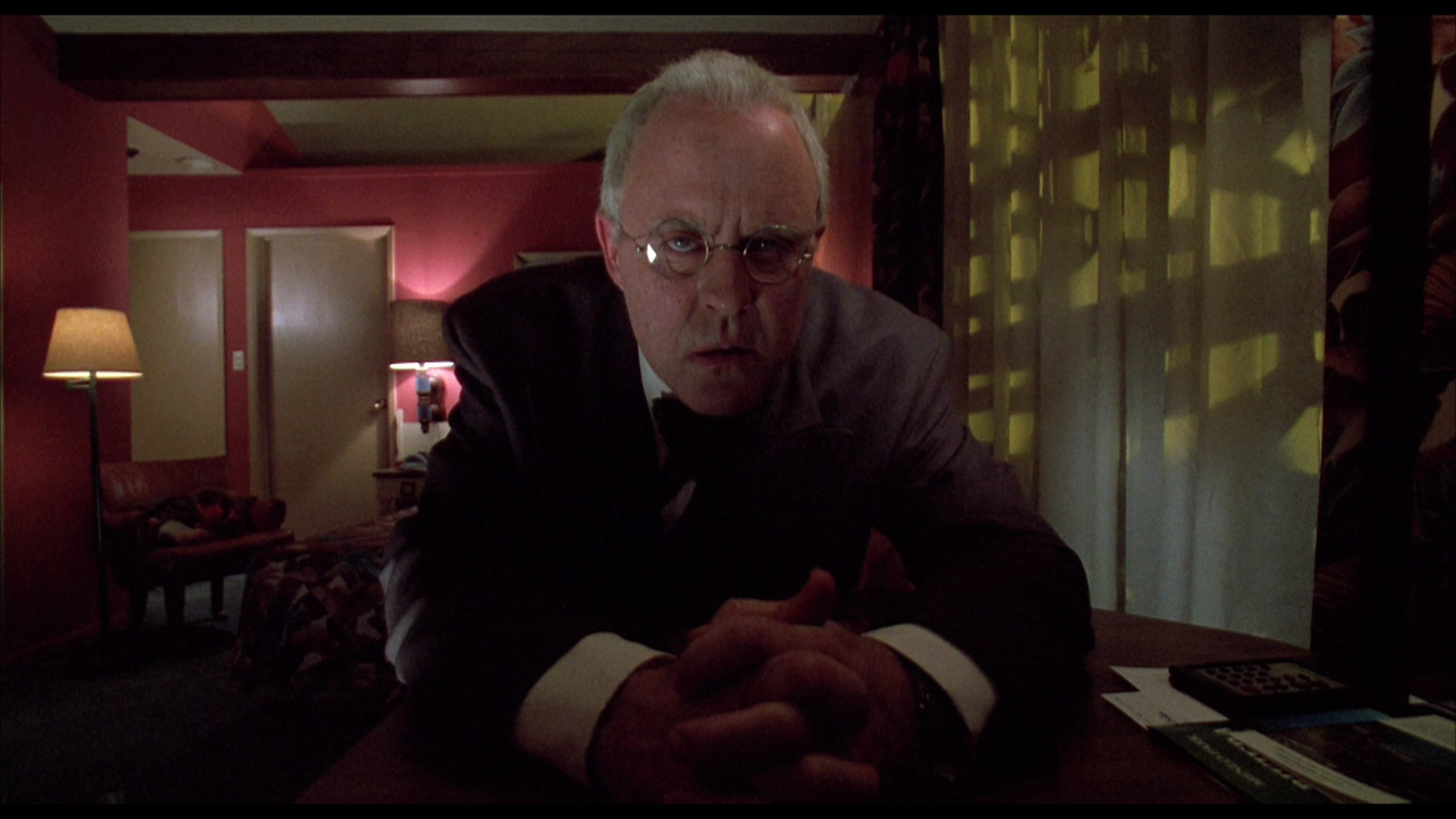 Pulp Fiction and Memento. This drastically reshuffled edition, originally posted as Raising Cain Recut,
Pulp Fiction and Memento. This drastically reshuffled edition, originally posted as Raising Cain Recut, 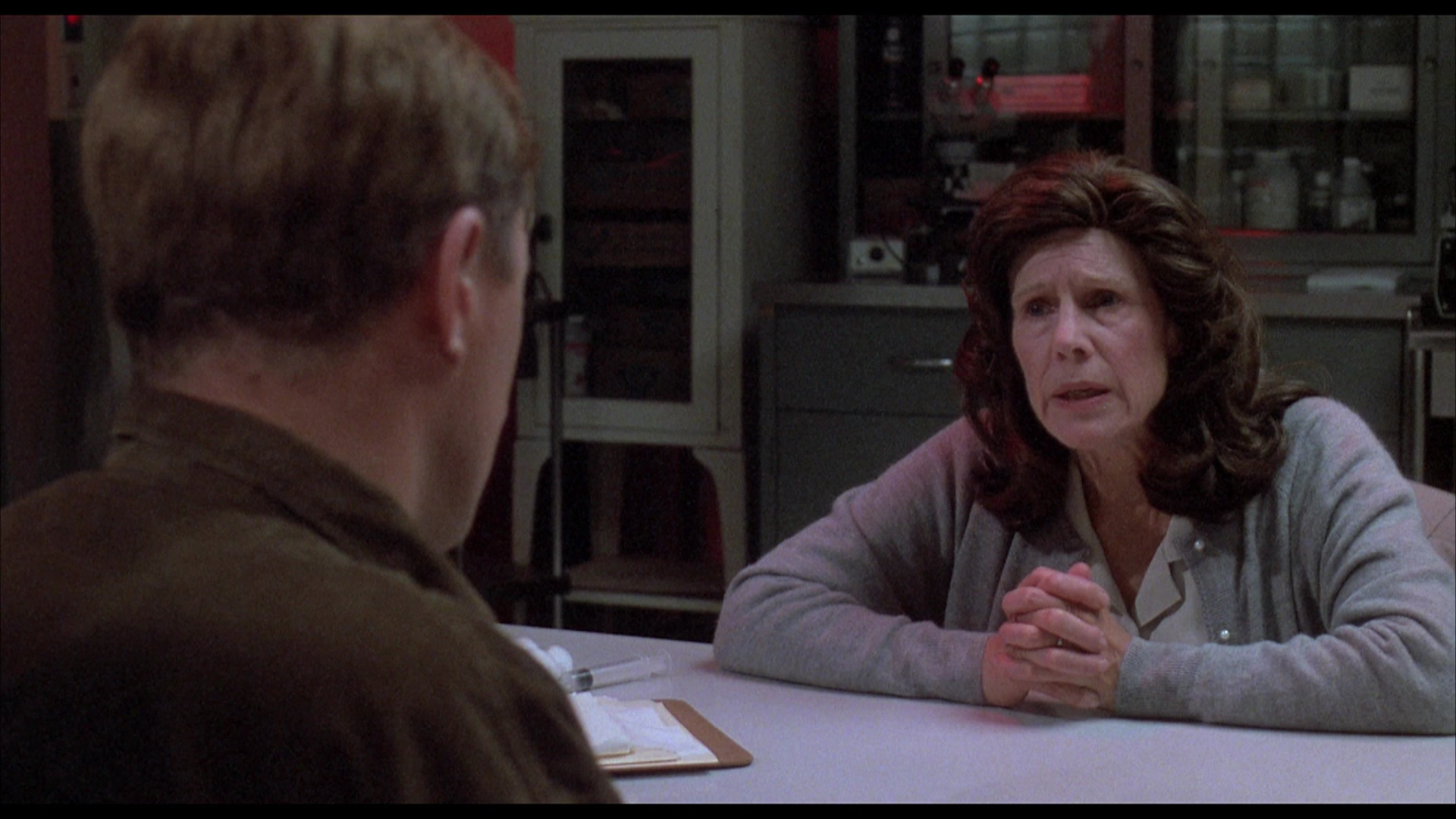 has since been given the filmmaker's blessing and been christened the director's cut, which seems appropriate as it's a stronger way to present the story with a much more accessible presentation of Lithgow's character (who almost serves as background wallpaper for the first act). This may not be the best place to start if you're new to De Palma, but if you're ready to jump into the crazy end of the pool, it's an experience unlike any other -- and both cuts are well worth watching.
has since been given the filmmaker's blessing and been christened the director's cut, which seems appropriate as it's a stronger way to present the story with a much more accessible presentation of Lithgow's character (who almost serves as background wallpaper for the first act). This may not be the best place to start if you're new to De Palma, but if you're ready to jump into the crazy end of the pool, it's an experience unlike any other -- and both cuts are well worth watching.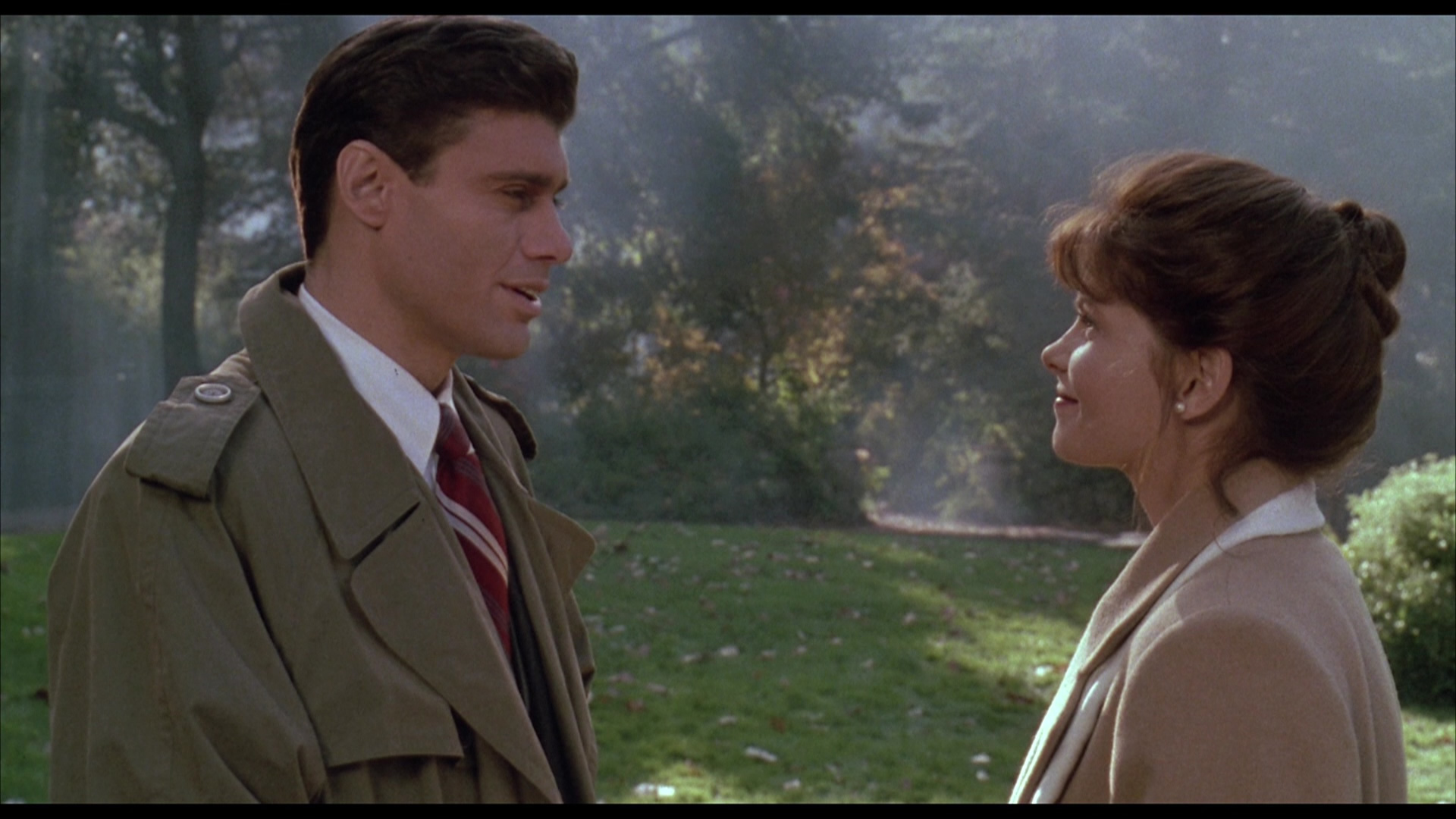 handful of sound effects to the rear channels. Optional English subtitles are provided.
handful of sound effects to the rear channels. Optional English subtitles are provided. 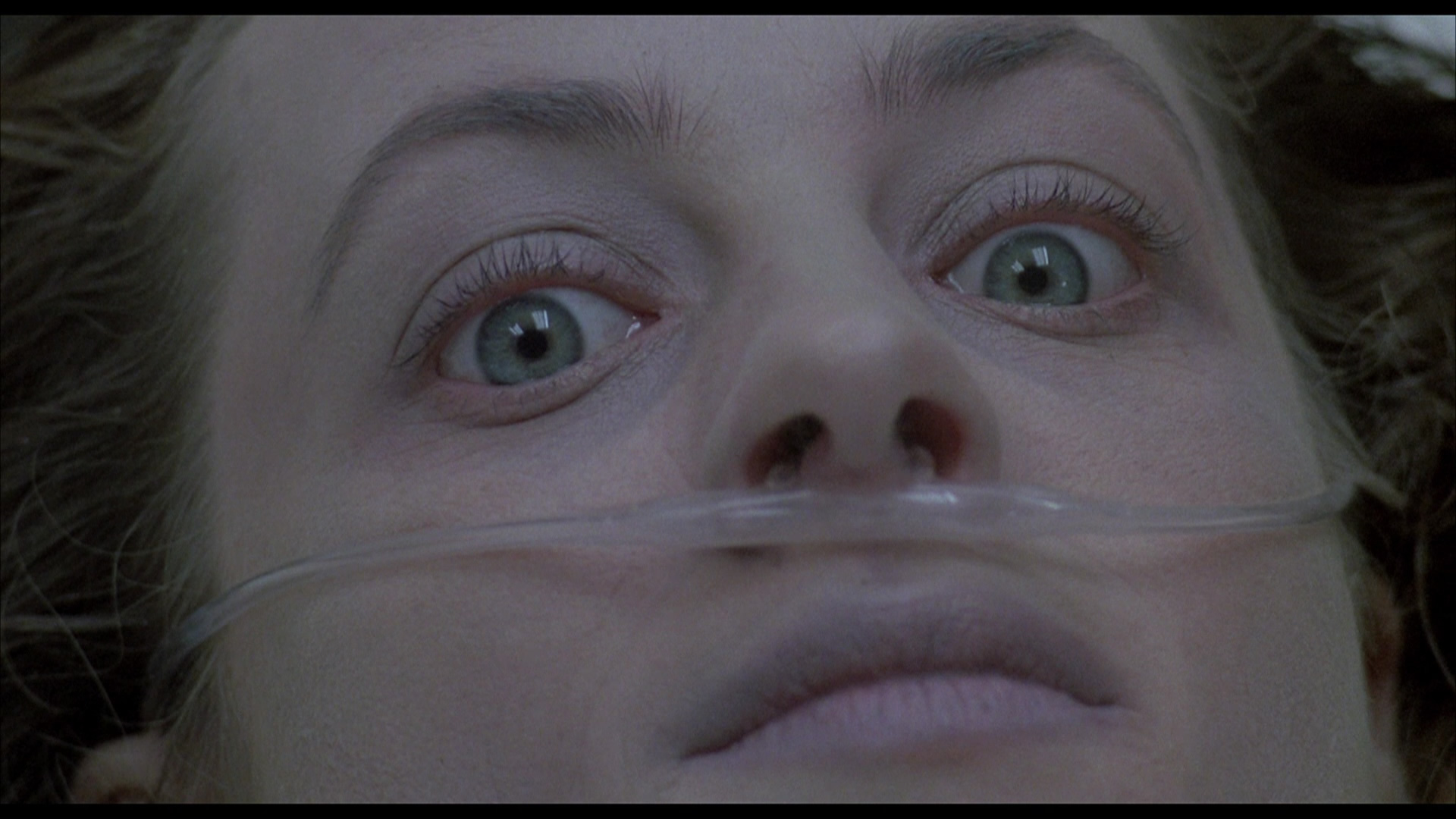 art, and a batch of featurettes: "The Man in My Life" (24 mins.) with Bauer recalling his work with De Palma on this and Scarface; "Have You Talked to the Others?" (10 mins.) with editor Paul Hirsch discussing the film's elaborate narrative and editing construction from page to screen; "Three Faces of Henry" (15 mins.) with Henry sharing stories about his multiple De Palma projects and the director's love of trickery and disguises for his characters; "The Cat's in the Bag" (8 mins.) with actor Tom Bower; and "A Little Too Late for That" (8 mins.) with actress Mel Harris ("Brian's films scare the heck out of me, but I can't stop watching!"). The second disc with the director's cut in both cases has an intro by filmmaker Peet Gelderblom, who first assembled this version and recreated it for the Blu-ray release, and a longer 13-minute examination by him covering how the film's central themes shifting dramatically when the original story structure was restored. The US disc also has a half-hour chat with Lithgow about the challenge and joy of taking on this flamboyant assignment after his prior De Palma films (Blow Out and Obsession), while similar territory gets mined on the UK disc with a different, 15-minute Lithgow interview, "Hickory Dickory Doc." The UK disc also adds two substantial, entirely new featurettes: "Raising Pino," a welcome 35-minute piece with the great composer about his lush compositions for this film and its placement in his classic string of De Palma scores, and "Father's Day," a 23-minute overview of the meaning and significance of the two versions of the film, presented by Un-American Psycho author Chris Dumas and more closely picking apart the details of the second draft that served as a blueprint for this newer cut. A liner notes essay by Anne Billson is also included, and it's also worth noting the reversible sleeve options featuring the so-so Universal poster and an excellent new design by Nathanael Marsh that's easily the most striking piece of artwork designed for this film to date.
art, and a batch of featurettes: "The Man in My Life" (24 mins.) with Bauer recalling his work with De Palma on this and Scarface; "Have You Talked to the Others?" (10 mins.) with editor Paul Hirsch discussing the film's elaborate narrative and editing construction from page to screen; "Three Faces of Henry" (15 mins.) with Henry sharing stories about his multiple De Palma projects and the director's love of trickery and disguises for his characters; "The Cat's in the Bag" (8 mins.) with actor Tom Bower; and "A Little Too Late for That" (8 mins.) with actress Mel Harris ("Brian's films scare the heck out of me, but I can't stop watching!"). The second disc with the director's cut in both cases has an intro by filmmaker Peet Gelderblom, who first assembled this version and recreated it for the Blu-ray release, and a longer 13-minute examination by him covering how the film's central themes shifting dramatically when the original story structure was restored. The US disc also has a half-hour chat with Lithgow about the challenge and joy of taking on this flamboyant assignment after his prior De Palma films (Blow Out and Obsession), while similar territory gets mined on the UK disc with a different, 15-minute Lithgow interview, "Hickory Dickory Doc." The UK disc also adds two substantial, entirely new featurettes: "Raising Pino," a welcome 35-minute piece with the great composer about his lush compositions for this film and its placement in his classic string of De Palma scores, and "Father's Day," a 23-minute overview of the meaning and significance of the two versions of the film, presented by Un-American Psycho author Chris Dumas and more closely picking apart the details of the second draft that served as a blueprint for this newer cut. A liner notes essay by Anne Billson is also included, and it's also worth noting the reversible sleeve options featuring the so-so Universal poster and an excellent new design by Nathanael Marsh that's easily the most striking piece of artwork designed for this film to date.